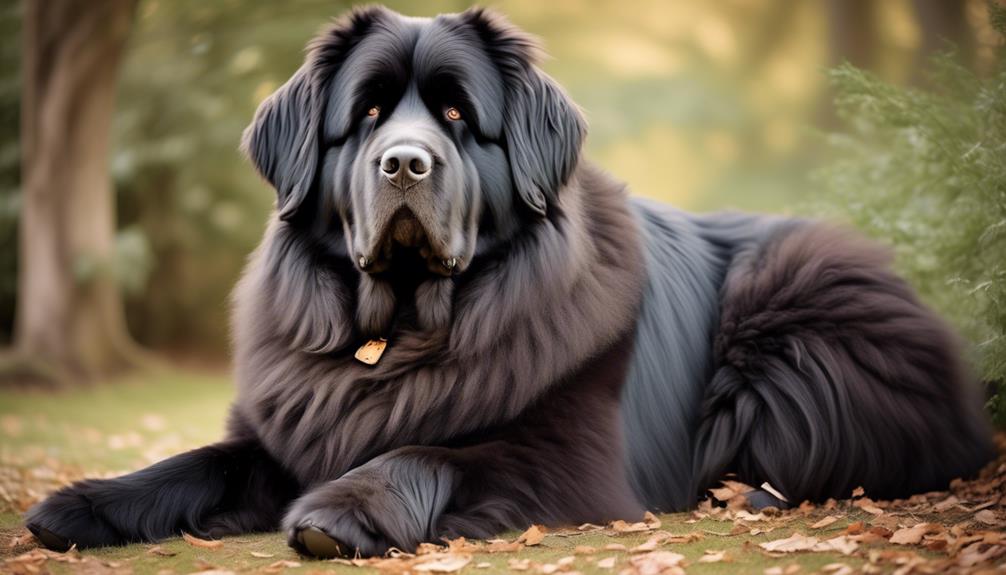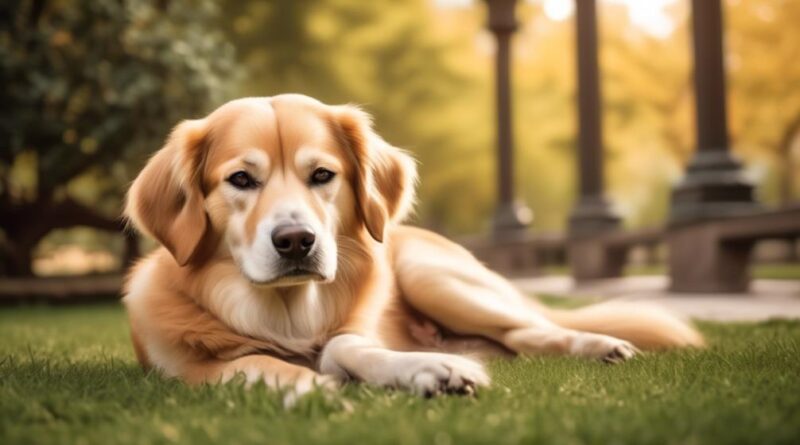Quiet Dog Breeds: The Less Barky Canines
You know the saying, 'it's the quiet ones you have to watch'? Well, when it comes to dog breeds, the same can often be true. Some canines are just naturally less prone to barking, making them the perfect companions for those who prefer peace and quiet.
But which breeds fall into this category, and what sets them apart from their more vocal counterparts? If you're curious about the world of quiet dog breeds and the unique traits that make them less barky, you might just find the perfect match for your lifestyle.
Basenji
If you're looking for a quiet and independent dog breed, the Basenji might be the perfect fit for you. Known for their cat-like grooming habits and unique temperament, Basenjis are a great choice for those who prefer a quieter companion.
Their temperament is often described as alert, affectionate, and curious. They're also known for their independent nature, which can sometimes come across as aloof, but they're fiercely loyal to their families.
When it comes to exercise needs, Basenjis are an active breed and require regular physical activity. They love to play and run, so daily walks and playtime are essential to keep them happy and healthy.
In terms of grooming, Basenjis are relatively low-maintenance. Their short coat requires minimal grooming, and they're known to groom themselves like cats. However, they do shed, so regular brushing is recommended to minimize loose hair around the house.
As for health concerns, Basenjis are generally a healthy breed, but like all dogs, they're still prone to certain health issues. One common concern is Fanconi syndrome, a hereditary kidney disease. Responsible breeding practices can help minimize the risk of this and other health issues.
Cavalier King Charles Spaniel
The Cavalier King Charles Spaniel is a beloved companion dog known for its gentle and affectionate nature. Besides being wonderful pets, they also offer several health benefits. Their calm demeanor and affectionate nature can help reduce stress and anxiety, making them great therapy dogs. Their size also makes them suitable for apartment living, and their moderate exercise needs can encourage their owners to stay active. However, like all breeds, they require proper care to ensure their well-being.
When it comes to training, Cavaliers respond well to positive reinforcement. They're eager to please and can excel in obedience training. Start with basic commands and gradually introduce more advanced tricks. Socialization is crucial for this breed to ensure they grow up to be well-mannered and friendly. Exposing them to different people, animals, and environments from a young age can help prevent any potential shyness or fearfulness. Additionally, due to their affectionate nature, they can be sensitive to harsh training methods, so patience and consistency are key.
Bichon Frise
Considering your interest in calm and affectionate dog breeds, the Bichon Frise is a delightful choice for those seeking a small, sociable companion. Here's why the Bichon Frise may be the perfect addition to your family:
- Grooming Tips: The Bichon Frise has a curly coat that requires regular grooming to prevent matting and tangling. Brushing several times a week and professional grooming every 4-6 weeks will help maintain their signature fluffy look.
- Temperament and Training: Known for their playful and gentle nature, Bichon Frises are generally friendly and affectionate. They respond well to positive reinforcement training methods and thrive on social interaction, making them great for families and individuals alike.
- Health Concerns: While generally healthy, Bichon Frises may be prone to certain health issues such as dental problems, allergies, and joint issues. Regular veterinary check-ups and a healthy diet can help mitigate these concerns.
- Exercise Requirements: Despite their small size, Bichon Frises are energetic and require regular exercise to keep them happy and healthy. Daily walks, interactive play sessions, and even some agility training can help fulfill their exercise needs.
Greyhound
Looking for a low-energy, quiet dog breed? Consider the Greyhound, known for its calm demeanor and gentle nature. Greyhounds are typically laid-back and undemanding companions, making them great for apartment living or for those who prefer a serene environment. Despite their athletic build, they're surprisingly low-energy and enjoy lounging for most of the day. However, they do benefit from regular walks and some playtime, so they aren't entirely sedentary.
When it comes to their temperament and exercise needs, Greyhounds are generally quiet and well-mannered. They're known for their peaceful disposition and are rarely prone to excessive barking, making them an ideal choice for those seeking a quiet canine companion. As with any dog, regular exercise is important to keep them healthy and happy. A couple of daily walks or a chance to stretch their legs in a safely enclosed area should suffice.
For those interested in adopting a Greyhound, there are numerous rescue organizations dedicated to finding loving homes for retired racing Greyhounds. These organizations often provide thorough information about the dogs' personalities and temperaments, making it easier to find the perfect match for your lifestyle. Additionally, Greyhound adoption groups offer support and resources to ensure a smooth transition for both the dog and the new owner. If you're considering adding a calm and graceful Greyhound to your family, adoption can be a rewarding option.
Shiba Inu
Interested in a spirited and independent companion? The Shiba Inu may be the breed for you. This small and agile Japanese breed is known for its fox-like appearance and confident personality. Here's what you need to know about the Shiba Inu:
- Temperament: Shiba Inus are known for their bold, spirited, and independent nature. They're often described as cat-like due to their cleanliness and tendency to groom themselves. While they can be loyal and affectionate, they also have a strong sense of independence, which can make them aloof at times.
- Training Techniques: Due to their independent nature, training a Shiba Inu can be challenging. Positive reinforcement techniques work best with this breed. Using treats, praise, and consistent training will help encourage good behavior. It's important to start training early and maintain a firm and patient approach.
- Exercise Needs: Shiba Inus are energetic and require regular exercise to stay healthy and happy. Daily walks, interactive play, and mental stimulation are essential for this active breed. A tired Shiba Inu is less likely to engage in destructive behaviors.
- Socialization: Early socialization is crucial for Shiba Inus to ensure they're well-adjusted and friendly around other dogs and people. Exposing them to various environments, sounds, and experiences from a young age will help prevent shyness or aggression.
Understanding the Shiba Inu's temperament and employing effective training techniques will help you build a strong bond with this unique and lively companion.
Bullmastiff
The Bullmastiff, a powerful and loyal breed, is known for its imposing presence and gentle demeanor. When it comes to training a Bullmastiff, consistency and positive reinforcement are key. They're intelligent and eager to please, making them relatively easy to train. Start training early and be firm but gentle, as they respond best to a calm and confident leader. Socialization is important to prevent them from becoming overly protective. Expose them to various people, animals, and environments from a young age to ensure they grow up to be well-rounded and well-behaved companions.
In terms of exercise, Bullmastiffs are a large and muscular breed, so regular physical activity is important to keep them healthy and happy. They enjoy moderate exercise such as daily walks and playtime, but they aren't overly energetic. Be mindful of their tendency to overheat due to their short muzzle, especially in hot weather. Additionally, avoid strenuous exercise during their growth stages to prevent joint issues. Mental stimulation is also crucial for this intelligent breed, so consider incorporating interactive toys or training activities into their routine.
Newfoundland

Newfoundlands are renowned for their gentle nature and impressive strength, making them an ideal choice for families seeking a devoted and powerful companion. Here's what makes them stand out:
- Gentle Giants: Newfoundland's gentle nature is a defining trait. They're known for their patient and kind demeanor, especially with children. Their calm and nurturing disposition makes them excellent family pets.
- Water Rescue Abilities: Newfoundland's are natural swimmers and have a strong instinct to rescue. They're often referred to as 'lifeguard dogs' due to their exceptional abilities in water rescue. Their webbed feet and muscular build make them powerful swimmers, and their thick water-resistant coat provides insulation in cold water.
- Strength and Size: These dogs are impressively strong and large, with males weighing between 130-150 pounds and standing 28 inches tall on average. Their robust build and muscular stature make them well-suited for various tasks, including hauling, carting, and other forms of physical work.
- Loyal and Protective: Newfoundland's are fiercely loyal to their families and are natural protectors. Their watchful and nurturing nature makes them excellent guard dogs. Despite their size, they're gentle and nurturing towards their loved ones, making them the perfect combination of strength and tenderness.
These qualities make Newfoundland's an outstanding choice for families seeking a gentle, powerful, and devoted companion.
Whippet
Renowned for their speed and elegance, Whippets are a stark contrast to the gentle giants of Newfoundlands, offering a graceful and agile option for families seeking a quieter breed. With a calm and affectionate temperament, Whippets make excellent companions. They're known for their gentle and friendly nature, making them great pets for families with children. However, Whippets can be a bit stubborn during training. It's important to use positive reinforcement techniques and be patient when training them. Consistent and firm guidance will help them understand what's expected of them.
When it comes to exercise, Whippets are athletic and require regular physical activity. A good run in a secure area or a brisk walk will help them burn off their energy. Due to their sprinting ability, they should always be exercised on a leash or in a secure area, as they've a strong prey drive and will chase small animals.
In terms of health considerations, Whippets are generally a robust breed. However, like all dogs, they're prone to certain health issues such as heart problems and eye diseases. Regular vet check-ups and a healthy diet are essential for maintaining their well-being.
Frequently Asked Questions
What Are the Exercise Needs for a Basenji?
You'll find that the Basenji has high energy levels and needs regular exercise to stay happy and healthy. Daily walks, playtime, and mental stimulation are essential for meeting the Basenji's workout needs and activity levels.
Are Cavalier King Charles Spaniels Good With Children?
Cavalier King Charles Spaniels are great with kids. They have a gentle temperament and love to be around children. Consistent training methods and early socialization techniques can help ensure they behave well around kids.
Do Bichon Frises Have Any Common Health Issues?
Bichon Frises are generally healthy but can have common health issues like allergies and dental problems. Regular grooming and exercise are important to keep them healthy. Basenjis, on the other hand, are known for being quiet dogs.
How Often Should I Bathe a Greyhound?
For a Greyhound, grooming is key to manage shedding. Bathe them every 6-8 weeks using a gentle dog shampoo. Their short coat doesn't require frequent baths. Brushing weekly helps minimize shedding.
Are Shiba Inus Good for First-Time Dog Owners?
If you're a first-time dog owner, Shiba Inus can be a good choice. They're intelligent but independent, so consistent training and socialization are crucial. Grooming needs are manageable with regular brushing and occasional baths.
Conclusion
So if you're looking for a quieter companion, consider one of these breeds.
From the Basenji to the Newfoundland, these canines are known for their calm and peaceful nature.
Whether you live in an apartment or just prefer a quieter household, these less barky breeds could be the perfect fit for you.
With the right training and care, you can enjoy the company of a quiet and well-behaved dog.
